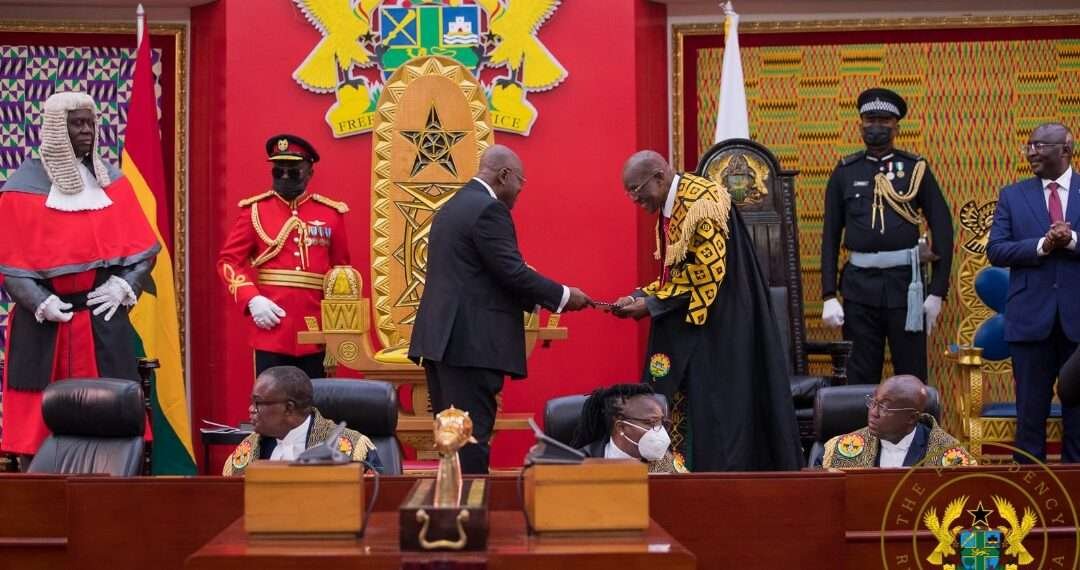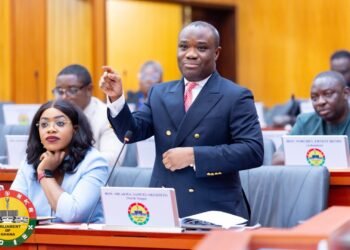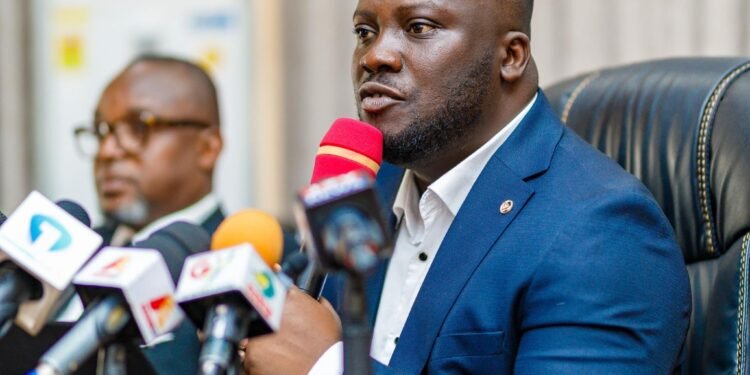Ghana, widely touted as the beacon of democracy in Africa, faces a novel challenge as it navigates its first Hung Parliament since the inception of the Fourth Republic.
This unprecedented situation has left crucial ministries, such as Health, Local Government, Environment, and Science and Technology, without substantive Ministers, stalling essential governance processes for over three months.
Professor Ransford Van Gyampo, a seasoned Political Science Lecturer at the University of Ghana, commenting on the vexed matter underscored its gravity and called for urgent action among stakeholders to address it.
The renowned Political Scientist elucidated that the standoff between the country’s executive and legislative arm of governemnt is symptomatic of the challenges inherent in governing with a Hung Parliament.
In his incisive analysis, he highlighted the inherent difficulties faced by the executive arm of government in such a scenario, emphasizing the importance of understanding and navigating the nuances of parliamentary dynamics.
“Ghana is now being governed with Important ministries such the Ministries of Health, Local Government, Environment, Science and Technology etc not having substantive Ministers. Though there have been nominees, they haven’t had the legitimacy and approval of the people of Ghana to work because of the showdown between Parliament and the Executive”.
Professor Ransford Van Gyampo
Professor Ransford Gyampo further underscored that the crux of the matter lies in the failure of President Akufo-Addo to grasp the complexities of governing amidst a Hung Parliament.
He criticised President Akufo-Addo’s administration perceived misconception or inadequate counsel in attempting to assert authority without considering the realities of a divided legislature.
This approach, Professor Gyampo astutely pointed out, is fraught with challenges and unsustainable in the long term.
Drawing parallels from global examples, particularly the United Kingdom, where minority governments have historically grappled with instability and inefficiency, Professor Gyampo underscored the need for a nuanced approach to governance.

Furthermore, the Research Fellow of the Institute of Economic Affairs (IEA) cited the success of the Scottish National Party’s minority government, which achieved stability and effectiveness through cross-party collaboration and a commitment to inclusive governance.
“How did they attain cross-party support? It was simply because their leadership refused to be arrogant and decided not to attempt to govern in a majoritarian way.
“They demonstrated “realpolitik” (the approach of conducting diplomatic or political policies based primarily on considerations of given circumstances and factors, rather than strictly following ideological, ethical, or personal idiosyncratic premises) in reaching out to the other side and with the necessary trade offs, give and takes, governance was smooth”.
Professor Ransford Van Gyampo
He thus posited that the current impasse in Ghana’s Parliament highlights the urgent need for both the executive and the legislative arms of government to prioritize compromise and cooperation.
He cautioned that failure to do so would not only undermine the effectiveness of governance but also jeopardizes the country’s stability and progress.
A Call for Executive-Parliamentary Compromise
As Ghana confronts the challenges posed by its first Hung Parliament, Professor Gyampo’s clarion call for diplomatic and pragmatic leadership resonates deeply.
President Akufo-Addo and the Speaker of Parliament, Rt. Honorable Alban Kingsford Sumana Bagbin must heed this call and prioritize national interest over partisan considerations.
Swift action is imperative to address the ongoing feud and restore confidence in Ghana’s democratic institutions.
It is without doubt that it is only through genuine collaboration and compromise that can help the country to surmount the challenges posed by its Hung Parliament and usher in a new era of effective governance.
Failure to address the ongoing feud and lack of cooperation threatens to plunge Ghana into further political turmoil, impeding its ability to effectively manage pressing challenges and fulfill its developmental aspirations.
READ ALSO: Profit-Takers Invade GSE, NewGold ETF Falls Victim























